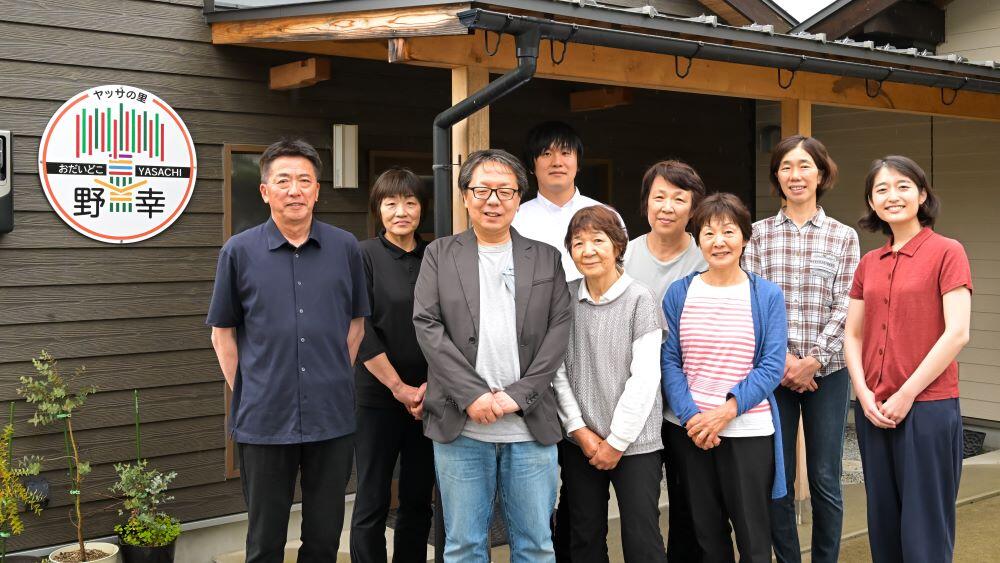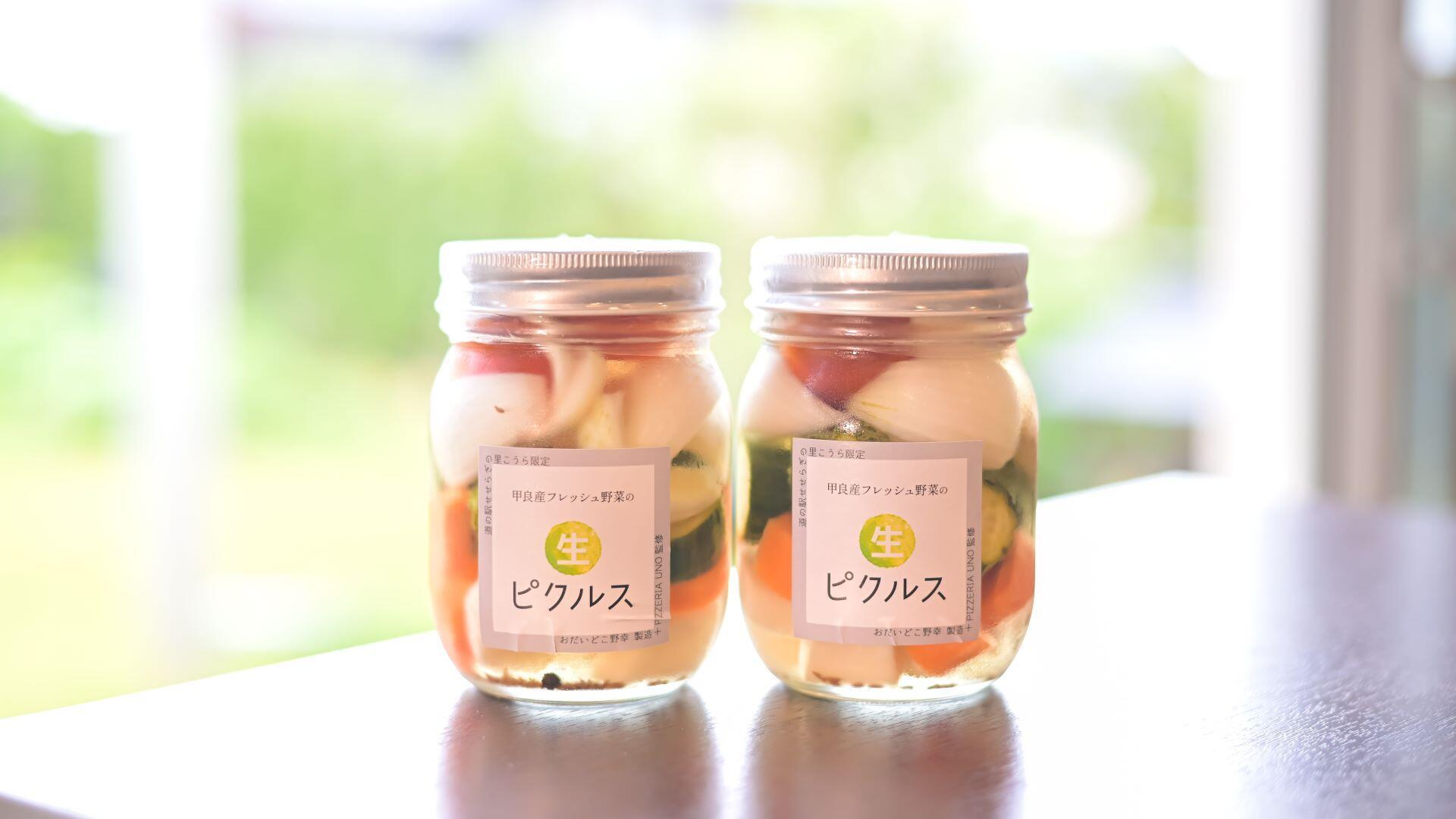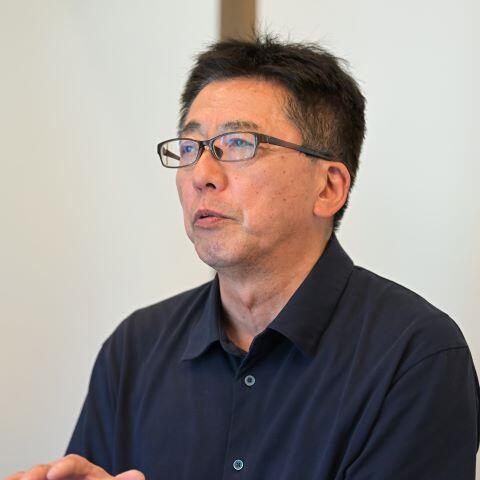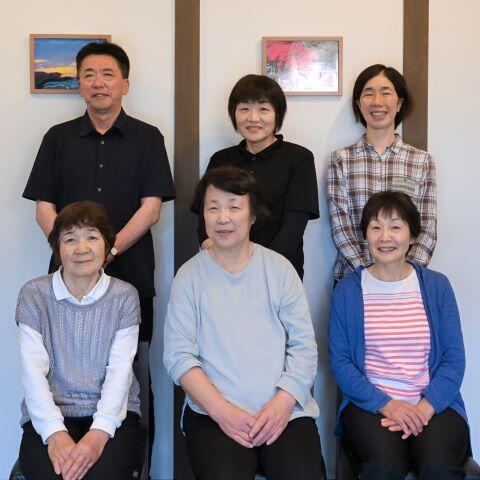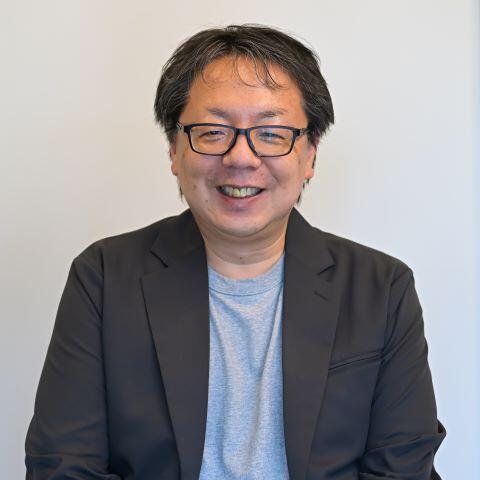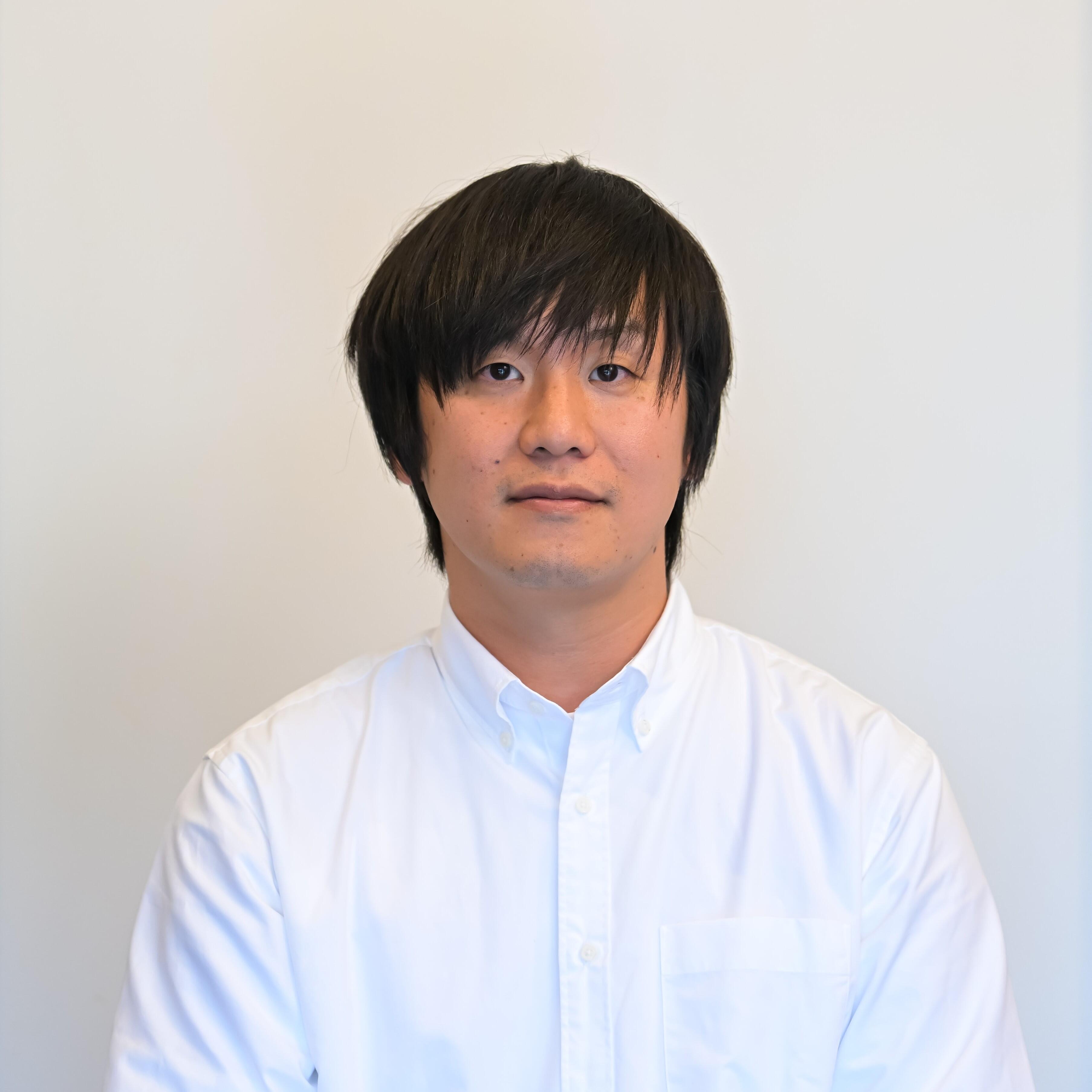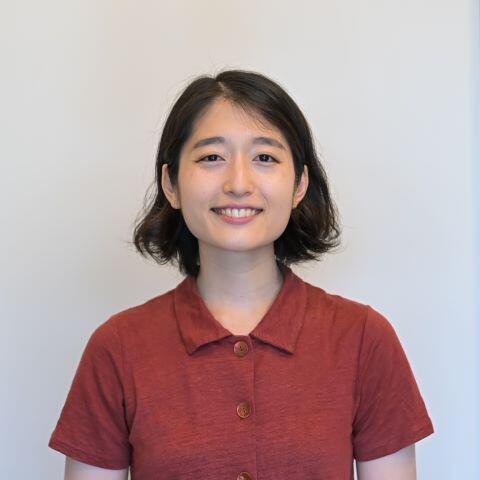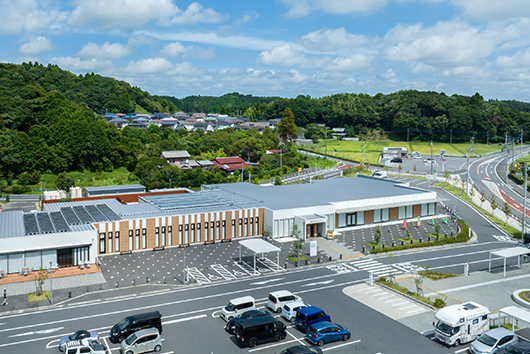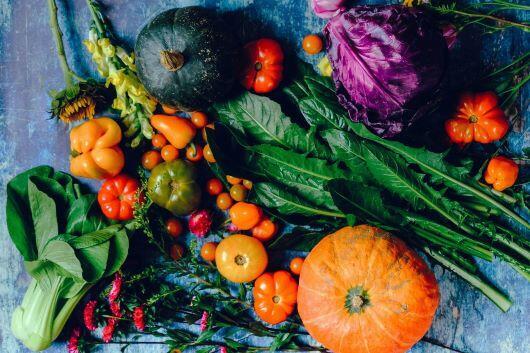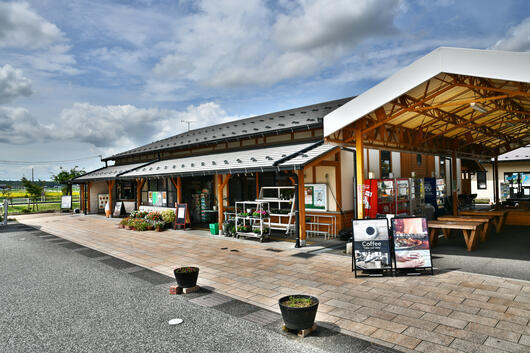"Sixth industrialization" is an initiative to develop the local economy through collaboration between farmers, forestry workers, fishermen (primary industry), food processors (secondary industry), and distributors and retailers (tertiary industry). PCKK promotes the sixth industrialization in the region through designated management of roadside stations.
In 2022, Roadside Station Seseragi no Sato Koura in Kora Town, Inukami District, Shiga Prefecture developed, manufactured, and sold new specialty products: "Original Craft Beer", "Kora-san Fresh Yasai no Nama Pickles (pickled Kora-grown fresh vegitables", and "Kora-san Sozai no Oishii Kanso Kajitsu (Kaki) (delicious Kora-grown dried percimon)".
This time, we spoke with Mr. HOKOYAMA, Representative of Agricultural Producers' Co-operative Corporation Farm Kanaya, who was involved in the projects for "Kora-san Fresh Yasai no Nama Pickles (pickled Kora-grown fresh vegitables" and "Kora-san Sozai no Oishii Kanso Kajitsu (Kaki) (delicious Kora-grown dried percimon)", the staff members at Noka Restaurant (farmer's restaurant) Odaidoko Yasachi, run by Agricultural Producers' Co-operative Corporation Farm Kanaya, as well as Akito KANAORI (Stationmaster of Roadside Station Seseragi no Sato Koura and ), Satoshi FUKUYAMA (In charge of business planning and development for food and beverage and food products) and Ayumi SHINOBU
(In charge of business planning and development for utilizing local resources), from PACIFIC CONSULTANTS CO., LTD.
INDEX
- New Products Born from Connections
- Commitment to Products from Kora Town
- Various Ideas to Promote the Product
- Protecting the Rich Natural Environment for Win-Win Relationships for the Entire region
New Products Born from Connections
--First of all, could you tell us about the division of roles for this project and how it started?
KANAORI:Roadside Station Koura developed the recipes for specialties pickles and dried percimon only available there, designed the labels, facilitates sales, and sells them, while Farm Kanaya grows and sources the raw materials, and Odaidoko Yasachi is in charge of manufacturing. As part of our efforts to promote the sixth industry, we were thinking of "making a specialty product using vegetables from Kora Town," and the idea of "fresh pickles" was raised within our company. So we contacted Farm Kanaya and Odaidoko Yasachi, and this project was launched.
--Did you have any previous connections with Roadside Station Koura, Farm Kanaya, and Odaidoko Yasachi?
KANAORI: Yes, since the roadside station opened, they have been shipping prepared foods, bento boxes, baked goods, and Odaidoko Yasachi's specialty black bean miso to the roadside station. We were also connected through the Kora Wellness Tourism Iinkai, an executive committee for promoting tourism. During that time, we heard about a collaboration between businesses to develop products, and that is why we asked them to do it this time.
HOKOYAMA: Around 2013, the Processing Department of Farm Kanaya was established by local women, renting facilities in town to process food and ship it to roadside station. In 2018, the farm restaurant Odaidoko Yasachi opened, which serves as both a restaurant and the base for the Processing Department.
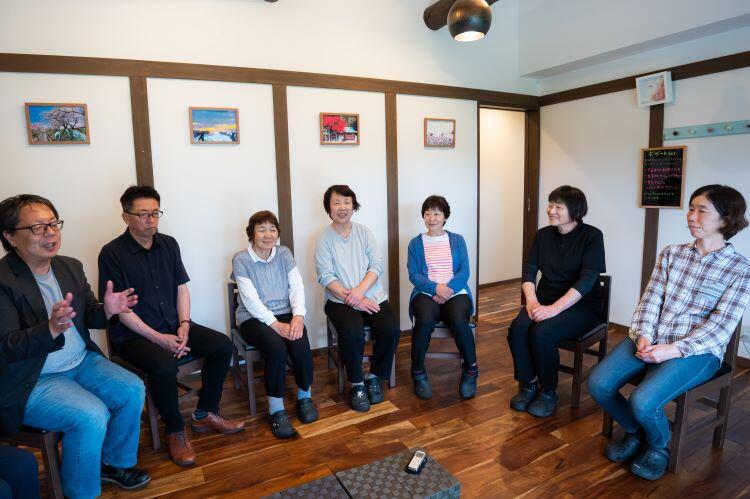
--What did you at Odaidoko Yasachi when you were first approached about making fresh pickles?
ODAIDOKO YASACHI: Pickles are unfamiliar to the members of ODAIDOKO YASACHI, so at first we were skeptical about whether they would sell. When we tasted the pickles, our first impression was "sour!" We made them with anxiety, wondering, "Will customers really accept this flavor?" and "Will they be willing to pay such a high price for them?" But unexpectedly, they sold well!
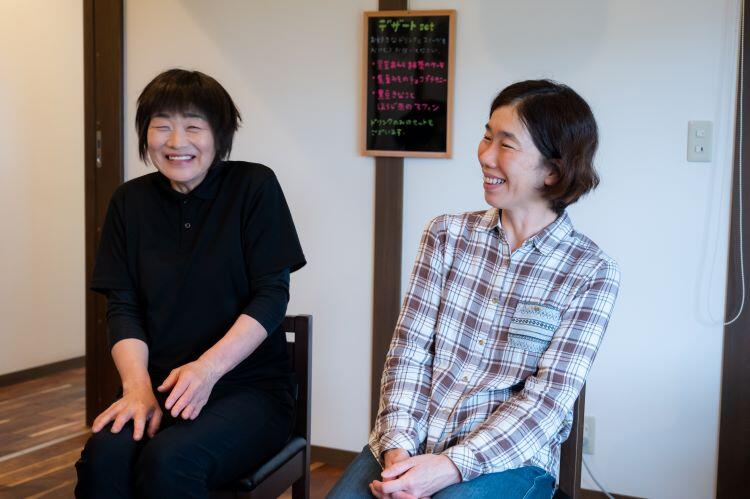
--Contrary to everyone's expectations, things turned out for the better.
SHINOBU: Actually, at roadside station we operate in Mutsuzawa-cho, Chiba Prefecture, we used to sell a product called "Kimagure Pickles Made with Mutsuzawa-Grown Vegetables." From the sales results, we knew there was a considerable demand for pickles. Raw vegetables have to be consumed within a short period of time, but if they are processed into pickles, they can be enjoyed for a slightly longer period, so we thought that in that respect, they would be well-received as a souvenir from roadside stations.
--After fresh pickles, you also started selling dried persimmons. How did that happen?
KANAORI: Since Odaidoko Yasachi had a machine for drying ingredients, we decided to try making dried vegetables and fruits. In the prototypes, we tried a variety of things, such as strawberries, figs, Jerusalem artichokes, and persimmons.
ODAIDOKO YASACHI: As for vegetables, we also tried tomatoes and turnips.
KANAORI: Among them, persimmon was the first one that we were able to produce with the most flavor and consistent quality, so we decided to commercialize it as the first in our dried fruit series.
Commitment to Products from Kora Town
--I'd like to ask you about your products. I feel that you are particular about using raw pickles, not cooked ones.
SHINOBU: Since we were using such fresh and delicious vegetables, we decided to make them into raw pickles so that they could be eaten like a salad while retaining as much of their texture as possible.
--Are you particular about the vegetables you use?
FUKUYAMA: The main concept this time was to use vegetables produced in Kora Town, so we used vegetables from Farm Kanaya as well as vegetables grown in local homes.
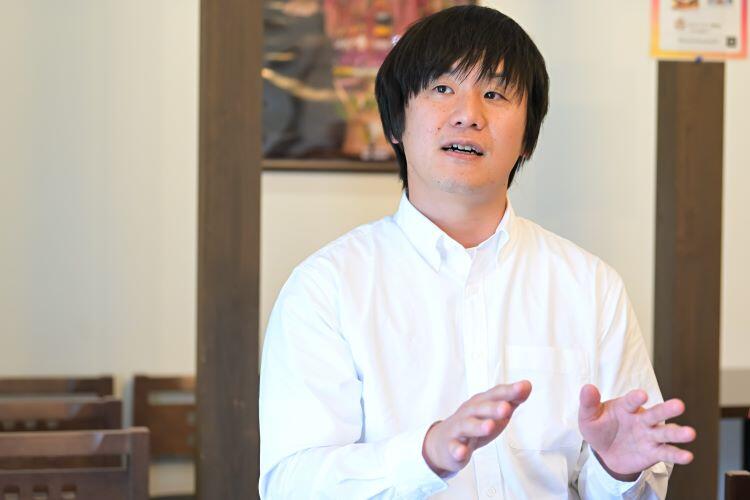
KANAORI: We also asked them to make the color of the product better when it was bottled, which was a bit of a stretch.
--It seems like it can be difficult to obtain vegetables depending on the season.
ODAIDOKO YASACHI: When vegetables are plentiful, we can get the raw materials inexpensively, but when vegetables are scarce, we have to buy more, so the cost of goods goes up during those times, which is an issue. Summer is the time of year when we can produce more pickles because of the abundance of colorful vegetables, and it is also the time of year when pickles sell best, so it was difficult to keep up with the production.
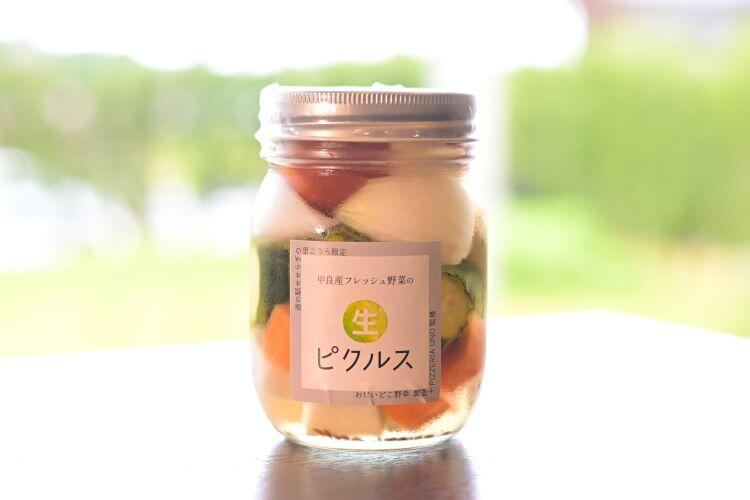
--That must be a happy cry because it's selling well.
SHINOBU: Whenever they arrived at the roadside station, we would tweet "Pickles have arrived!" and they would sell like hot cakes.
KANAORI: About a year has passed since the product was launched, and we have come to understand which months are easier to sell and which months are less easy to sell, so we are currently discussing with Yasachi that we would like to create a reasonable annual production plan.
Various Ideas to Promote the Product
--When developing craft beer, you set a target, but did you have a similar strategy for pickles and dried fruits?
SHINOBU: Yes. Both products were targeted primarily at tourists. After researching existing literature, we decided that our target purchasers would be health-conscious people and those who wanted to easily incorporate vegetables into their daily diet, so we made sure that the label design conveyed a healthy image and the freshness and cleanliness of raw vegetables.
--It is already a popular product, but are there any ideas or things you are thinking about to make it available to even more people?
SHINOBU: We would like to further strengthen our communication, mainly through social media. Recently, we had a YouTuber come on as a monitor and introduce the food of Kora Town, including pickles and dried fruits. In the future, we would like to create something like an experience plan that allows people to learn the story behind the products.
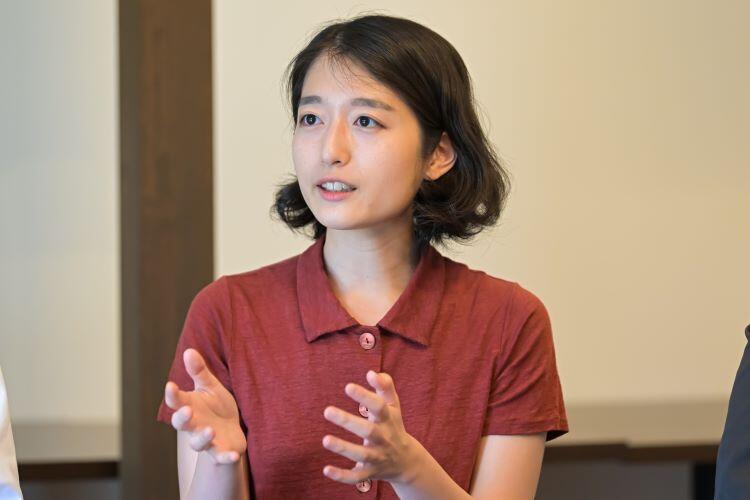
KANAORI: As with our original craft beer, we are also applying to be a gift for hometown tax donations. We would like to create and offer a set of beer, pickles, and dried fruit. Also, while the dried fruits were initially displayed in the cookies and sweets section, we are now also putting them next to the beer with handwritten signs, and are working on displaying them in a creative way.
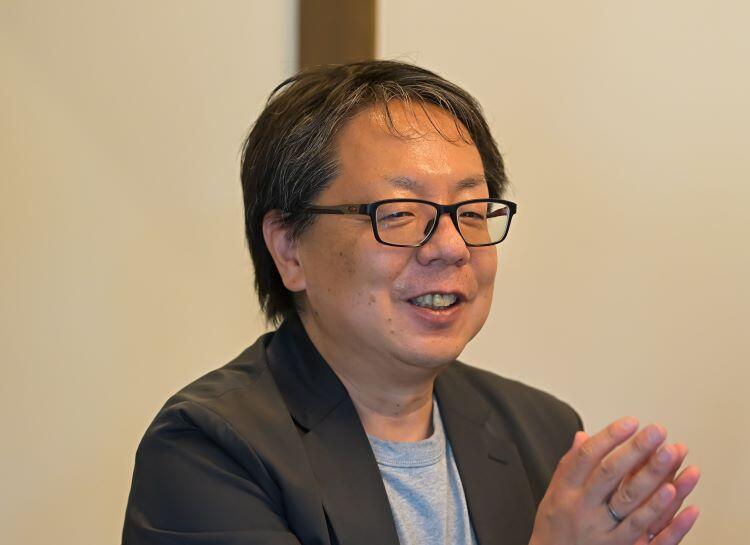
--Beer and dried fruit go really well together! Was that something you had in mind from the beginning?
KANAORI: Actually, we hadn't planned on going that far. After a manager at our headquarters suggested, "Dried fruit would go well with wine or beer," we increased the display space. This led to better product turnover. Displaying products according to needs was effective.
Protecting the Rich Natural Environment for Win-Win Relationships for the Entire region
-What are Farm Kanaya's plans for the future?
HOKOYAMA: Everything grown in Kora Town is delicious. Upstream of the Inukami River, which flows in front of Odaidoko Yasachi, there is the Inukami Dam, the first full-scale concrete dam for agricultural use in Japan, and thanks to the abundant water it receives, the rice is delicious. Also, as I've heard since I was a child, "Kanaya's sweet potatoes are delicious."
ODAIDOKO YASACHI: Yes, yes. It seems like the soil is suitable for this.
HOKOYAMA: That's what they say a lot. This area is full of delicious foods that come from the bounty of nature, so I want to continue to work hard to preserve our hometown.
--What do you all at Odaidoko Yasachi think about the future?
ODAIDOKO YASACHI: Most of the people living in Kora Town today are elderly, and it is becoming difficult for Odaidoko Yassachi members to maintain our physical strength. Even in such a situation, when we devise and serve vegetable-centered dishes every month, some customers say, "Amazing," or "That was delicious," and we have many repeat customers from as far away as Mie and Gifu, which encourages us to do our best. We want to protect this precious place where people can continue to work energetically for as long as possible.
FUKUYAMA: We would like to continue to maintain the policy of making profits for both shops in Kora Town such as Odaidoko Yasachi and the roadside station. I hope you will continue to be healthy and continue working together for a long time to come!
ODAIDOKO YASACHI: That's right! Take care! (lol)
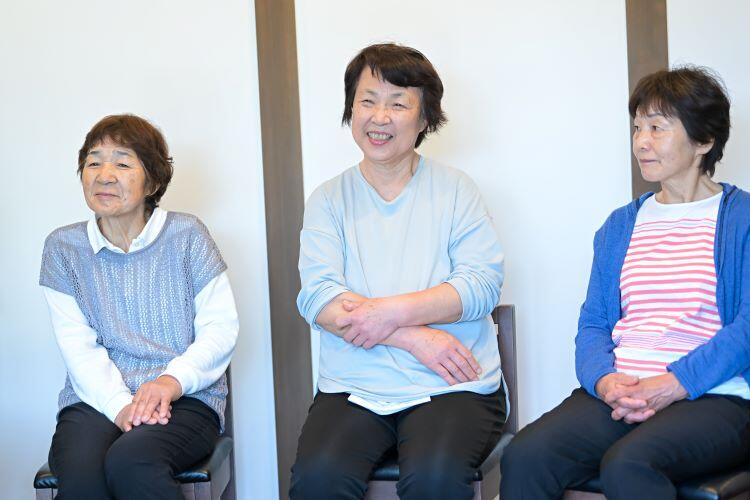
SHINOBU: The sweets, cakes, and fruit daifuku from Odaidoko Yasachi that are shipped to the roadside station are delicious and the flavor of the ingredients is preserved. I personally love them, so I'm happy to have been able to develop pickles with Odaidoko Yasachi. I'd like to continue to provide information so that we can continue to maintain a sustainable form.
KANAORI: I think it is very difficult to complete the entire process of 6th industrialization locally. These fresh pickles and dried fruits are the most ideal product because we were able to complete everything from growing the raw vegetables and fruits to manufacturing, processing, and sales all within Kora Town. In order to further develop this valuable success story, we would like to work with everyone to sell the products. We would also like to disseminate information using the roadside station as a core, and make the entire Kora Town area a lively tourist spot. Although the town faces various problems such as depopulation and aging, I believe that if the exchange population increases, the entire area will be revitalized, so I hope we can create a win-win relationship.
--I hope that through the sixth industry, the charm of Koryo Town will reach more and more people!
